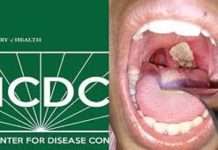
The World Health Organsation (WHO) has revealed that over one in five adults globally, approximately 846 million people aged between 15 and 49, are living with genital herpes. According to the new report published in the Sexually Transmitted Infections journal, at least 42 million people contract a new genital herpes infection every year, equivalent to one person every second.
While many Herpes cases remain asymptomatic, the WHO reports that more than 200 million individuals experienced symptomatic outbreaks in 2020, characterised by painful genital sores and blisters. These symptoms, which can persist or recur throughout life, cause significant discomfort and often require repeated healthcare visits.
Dr Meg Doherty, WHO’s director of Global HIV, Hepatitis, and Sexually Transmitted Infections Programmes, emphasised the need for innovative solutions to address the infection’s global impact. “Genital herpes continues to cause pain and distress for millions worldwide, straining already overburdened health systems. Better prevention and treatment options are urgently needed, which will also contribute to reducing HIV transmission,” she said.
According to the global health agency, Genital herpes is caused by the herpes simplex virus (HSV). The virus occurs in two forms: HSV-1 and HSV-2. While both can cause genital infections, HSV-2 is considered more severe, accounting for 90 percent of symptomatic outbreaks and significantly increasing the risk of HIV infection. Estimates indicate that 520 million people lived with genital HSV-2 in 2020.
HSV-1, typically spread during childhood through oral contact, has become a growing cause of genital infections in adolescents and adults. Around 376 million people globally were affected by genital HSV-1 in 2020. Public health experts attribute this shift to reduced oral transmission in childhood due to improved hygiene and living conditions, leaving individuals more susceptible to genital HSV-1 later in life.
Dr Sami Gottlieb, a WHO Medical Officer and an author of the study, highlighted the stigma associated with genital herpes, which often hinders discussions about the condition. “Not enough has been done to address this common infection,” Gottlieb said. She called for expanded research into vaccines and treatments to improve the quality of life for those affected.
Currently, there is no cure for herpes, but antiviral treatments can alleviate symptoms and reduce the risk of transmission. WHO advocates for condom use to lower transmission risks and encourages HIV testing and prevention strategies for individuals with genital herpes.










